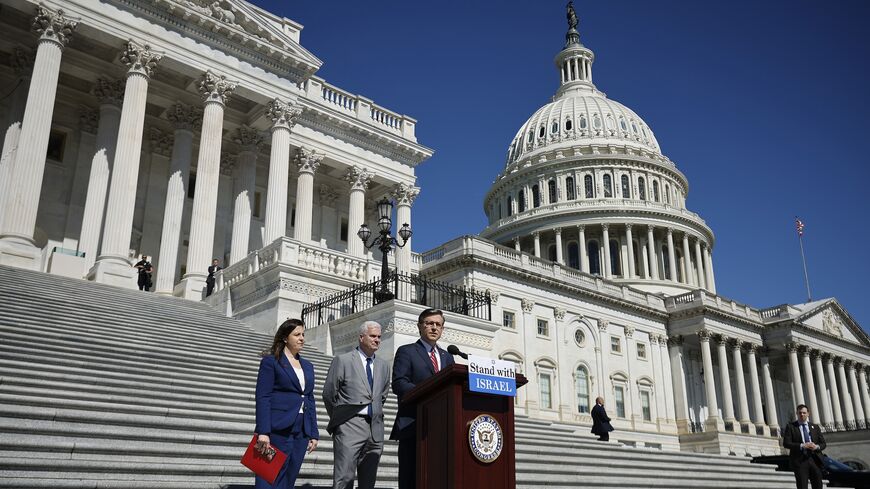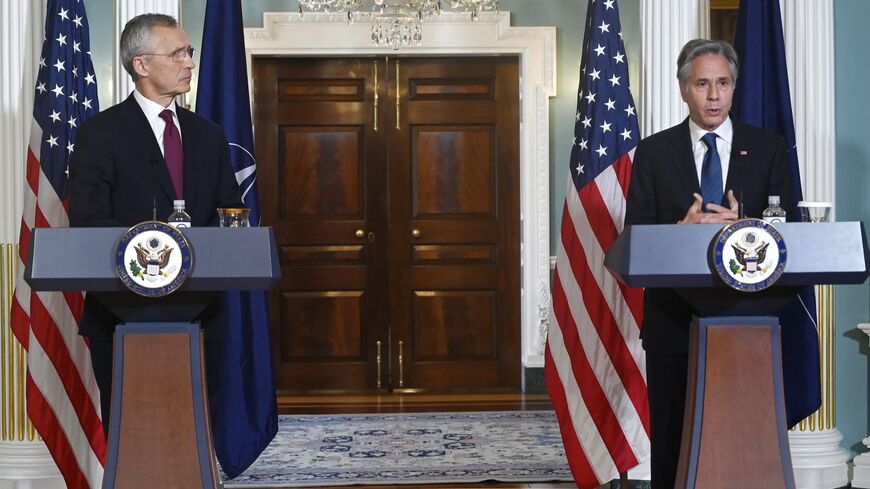Pentagon chief: No decision on unfreezing bombs shipment to Israel
Senior Israeli officials have reportedly expressed "deep frustration" with the Biden administration over the decision, warning that the pause could jeopardize hostage talks underway in Cairo.

WASHINGTON — US Defense Secretary Lloyd Austin told Senate lawmakers on Wednesday that the Biden administration has not issued a final decision on whether to unfreeze a planned shipment of 2,000-pound bombs to Israel, amid concerns in Washington over a potential Israeli invasion of Rafah.
The Biden administration paused a single planned shipment of 2,000-pound and 500-pound bombs last week over concerns the Israeli military would use them in the densely populated city of Rafah in southern Gaza, a senior administration official confirmed to Al-Monitor on Tuesday.
The administration has also placed other planned arms transfers to Israel under review, including for Joint Direct Attack Munitions (JDAM) guidance kits, which can be attached to air-dropped bombs to provide precision guidance.
Austin reiterated that fact during a briefing with the defense subcommittee of the Senate's Appropriations Committee on Wednesday morning.
"Again, we've made no decisions. We're assessing," Austin said. "We’re going to continue to do what’s necessary to ensure that Israel has the means to defend itself."
Biden administration officials have repeatedly warned that Israeli leaders should not launch a large-scale military ground incursion into Rafah without first enabling the evacuation of the majority of some 1.4 million civilians that have sought shelter there.
Pentagon officials have said they have not seen a credible Israeli plan to evacuate and provide for those civilians, most of whom sought refuge in Rafah on the closed southern border with Egypt after having been displaced from elsewhere in Gaza by the massively destructive Israeli campaign.
Axios' Barak Ravid reported on Wednesday that senior Israeli officials expressed "deep frustration" with the Biden administration over the decision, warning that the pause could jeopardize hostage talks underway in Cairo.
The paused arms transfer marked the first known instance of the Biden administration leveraging the flow of US weapons to Israel in a bid to limit its military campaign in the Gaza Strip, which has killed more than 34,700 Palestinians, engendered a famine and left huge swaths of the enclave in ruins.
An Israeli military spokesperson downplayed the broader rift with the United States over Rafah in a video statement on Wednesday, saying coordination between the two allies was "at a scope without precedent" in Israel's 76-year history. The spokesperson, Israel Defense Forces Rear Adm. Daniel Hagari, said the two countries resolve their differences "behind closed doors."
Led by Sen. Lindsey Graham (R-SC), Republicans on the committee hammered Austin about the frozen arms transfer.
"Those precision weapons will help [the Israeli military] fully defeat Hamas with less impact on the civilian population in Gaza. So why wouldn't we get them those weapons just as fast as we can?" Sen. John Hoeven (R-ND) asked Austin.
"I tend to agree with you," the US defense secretary replied. "You need precision-guided munitions of the right type, and that's why we just recently provided small-diameter bombs to Israel."
BREAKING: Speaker Johnson and Senate minority leader McConnell send a letter to President Biden expressing alarm about the decision to pause a weapons shipment to Israel and ask for clarification by the end of the week pic.twitter.com/OLd7agcEf1
— Barak Ravid (@BarakRavid) May 8, 2024
On Wednesday afternoon, House Speaker Mike Johnson and the Senate minority leader, Mitch McConnell, wrote a letter to President Biden expressing dismay with the decision to halt the arms shipment. "We were alarmed that your administration had delayed the delivery of a variety of weapons shipment bound for Israel," they wrote. The Republican leaders added that they are seeking clarification on the decision-making process and status of future arms shipments to Israel "by the end of the week."








